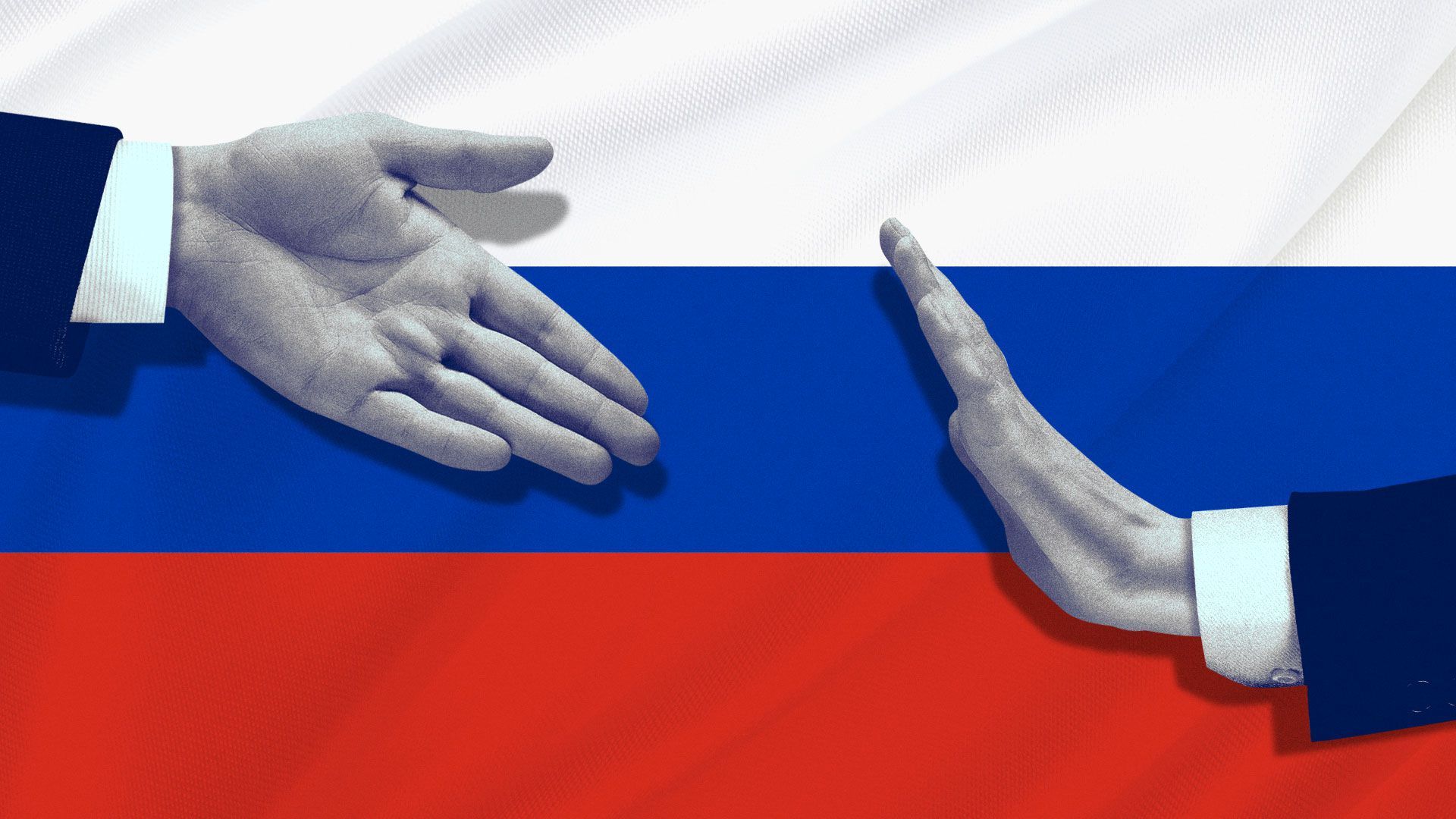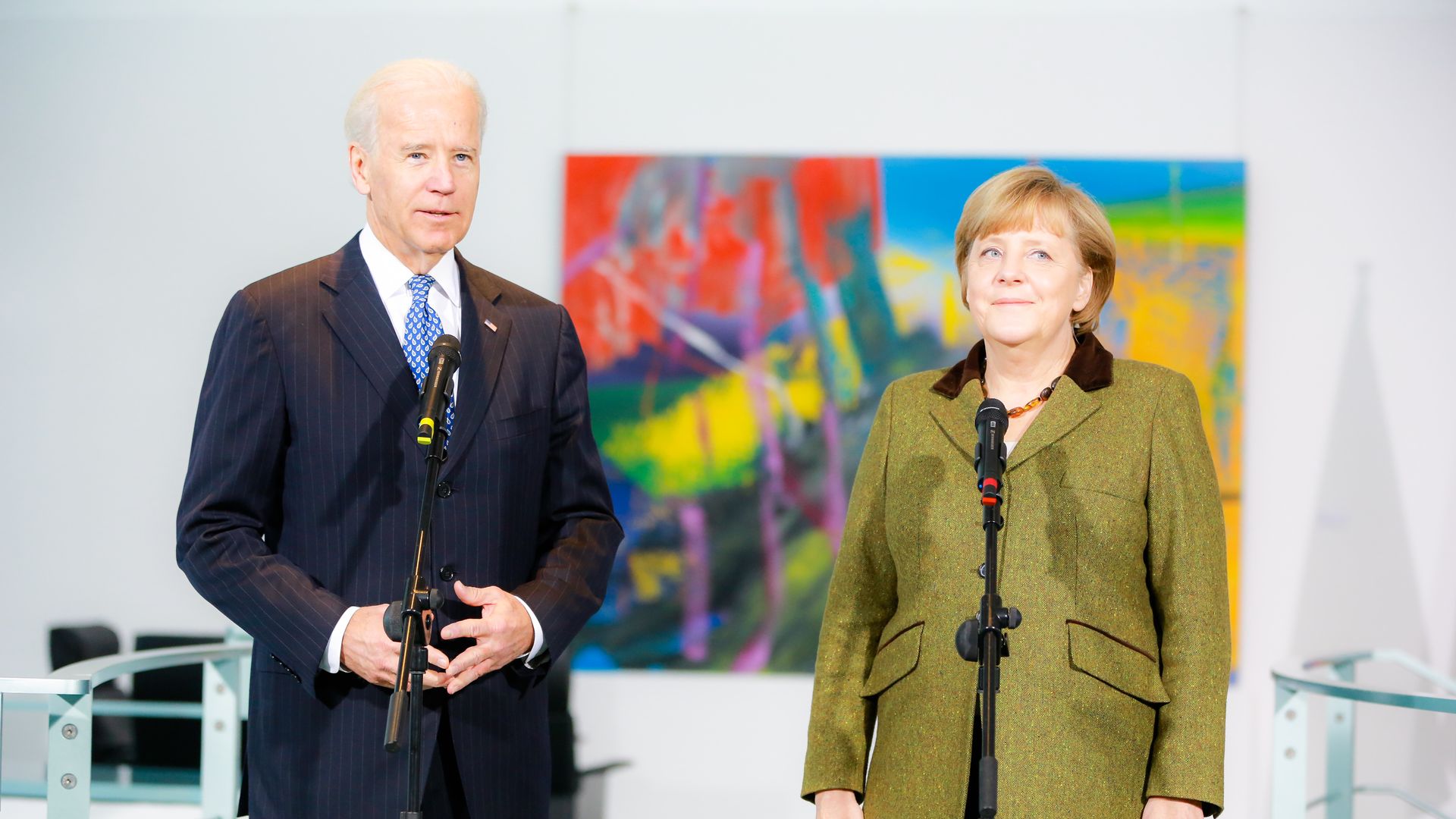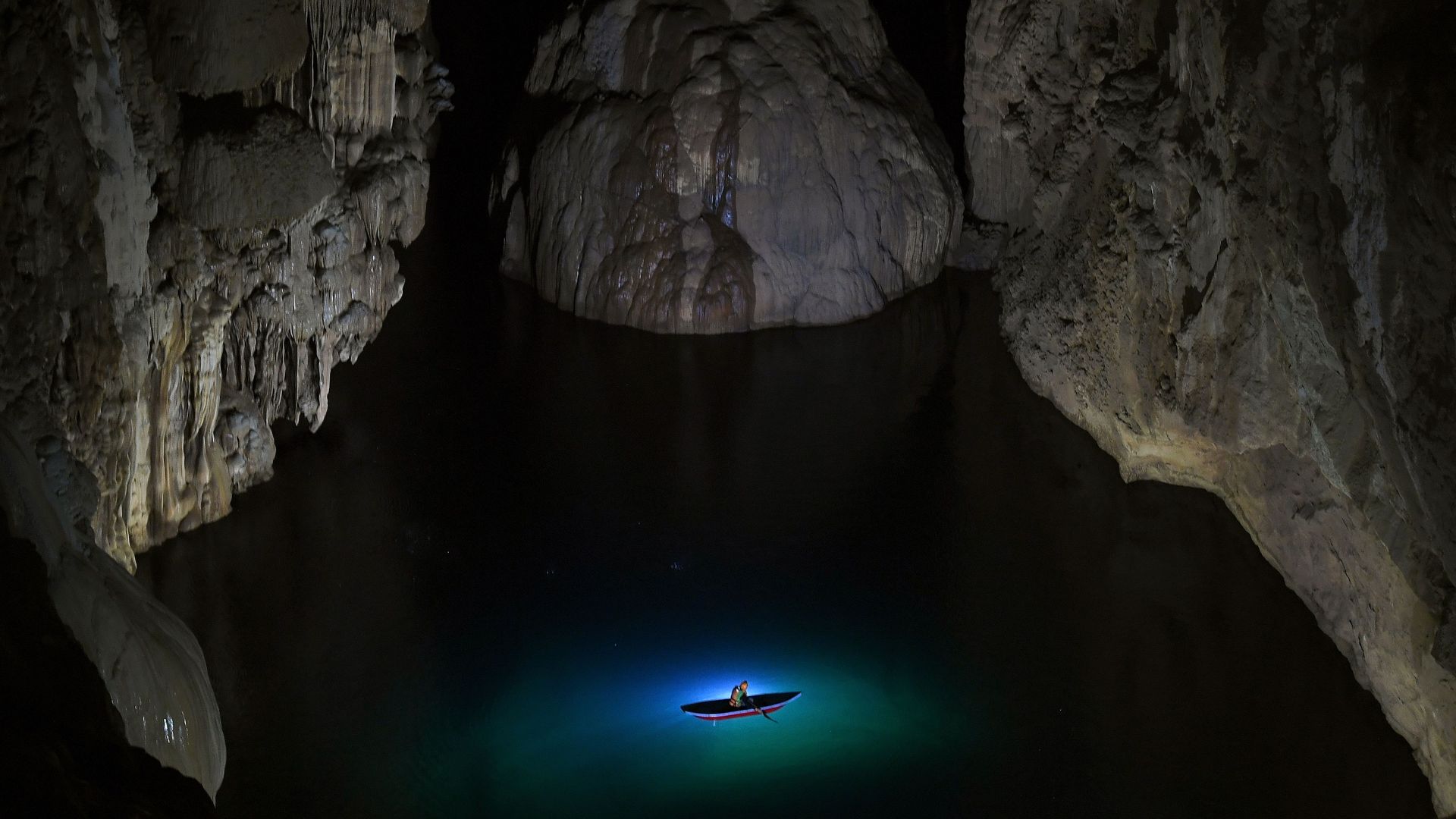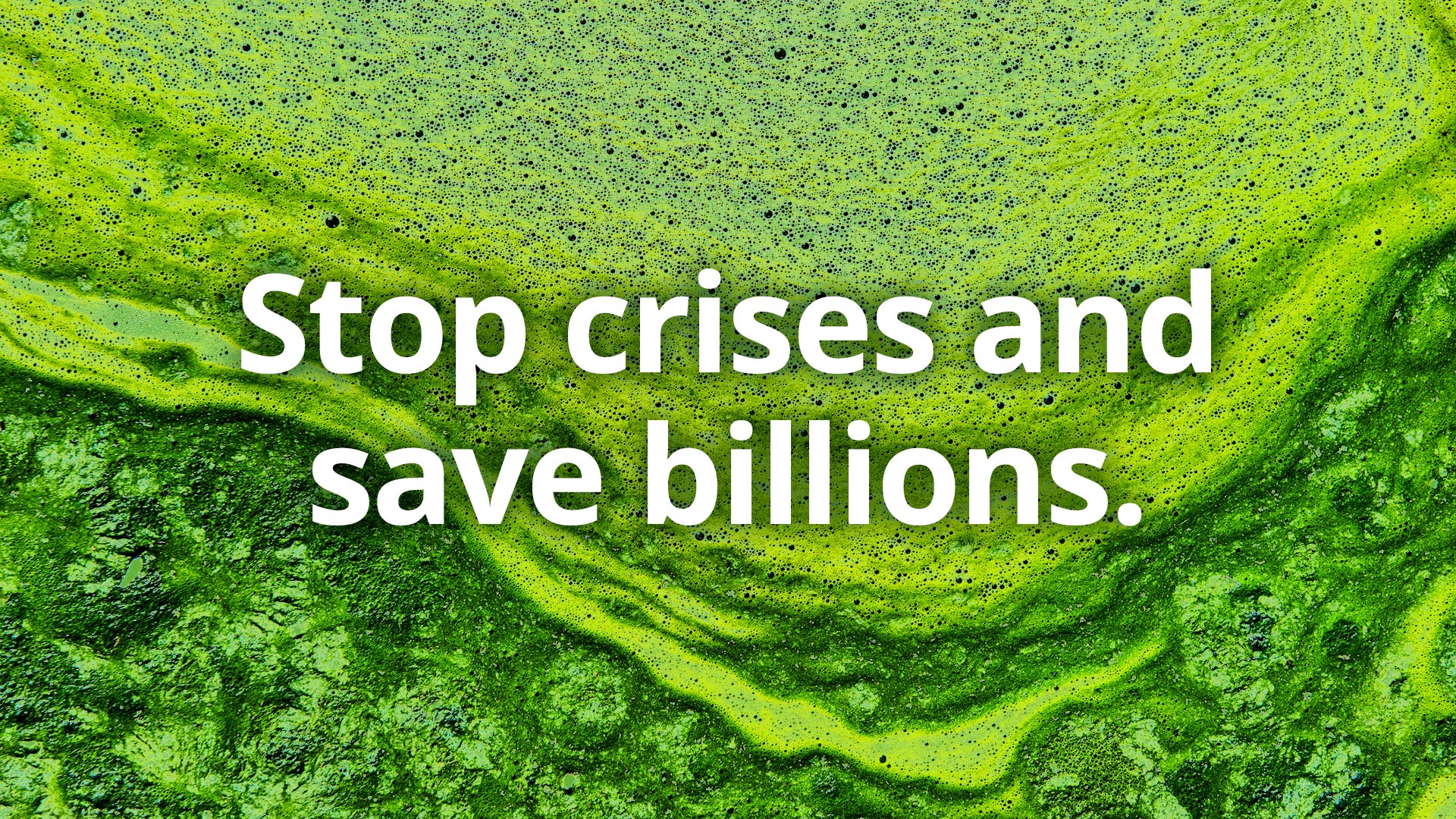| | | | | | | Presented By OurCrowd | | | | Axios World | | By Dave Lawler ·Jan 25, 2021 | | Welcome back to Axios World. Hope you had a lovely weekend. - We're taking off tonight from Russia, with stops at Davos, the Central African Republic and Italy (1,780 words, 6½ minutes).
New arrival? Sign up. | | | | | | 1 big thing: Biden's Russia challenge |  | | | Illustration: Eniola Odetunde/Axios | | | | The Biden administration was already on course for confrontation with Vladimir Putin, but that process has been accelerated by the arrest of Alexei Navalny and subsequent suppression of protests across Russia over the weekend. Why it matters: "Whatever was in their transition documents, this is now front and center for them," says Michael McFaul, the former U.S. ambassador to Moscow, adding that it could become Biden's "first foreign policy crisis." Driving the news: Around 3,000 people protesting Navalny's detention were arrested on Saturday across some 100 cities and 11 time zones. The demonstrations were a show of strength from Navalny, the Putin foe and anti-corruption activist who was arrested upon his return to Russia last Sunday. He had been recovering in Germany from an assassination attempt. - The State Department quickly condemned the "harsh tactics" from authorities and vowed to "stand shoulder-to-shoulder with our allies and partners in defense of human rights."
- Secretary of State-designate Tony Blinken had already set a clear tone over Navalny's arrest in his confirmation hearing last Tuesday, saying, "It's extraordinary how frightened Vladimir Putin seems to be of one man."
The big picture: In addition to demanding Navalny's release, the Biden administration has already proposed a five-year extension of the last treaty constraining the U.S. and Russian nuclear arsenals and announced an urgent investigation into a massive Russia-linked cyberattack. - Those three steps in Biden's first week underscore the challenge he faces from Putin — an authoritarian intent on weakening the U.S. and its alliances, with whom he'll nonetheless have to engage on critical issues.
- The administration's in-tray also includes Russia's election interference, the war in Ukraine, alleged bounties on U.S. troops in Afghanistan, and interventions in geopolitical hotspots around the world.
What they're saying: "We're going to be operating within a pretty narrow band of possibilities in dealing with Vladimir Putin's Russia — from the sharply competitive to the pretty nastily adversarial," veteran diplomat Bill Burns told Axios last fall before being nominated to lead Biden's CIA. - "I think it's going to be very important to be direct about what we will not tolerate in that relationship," added Burns, a former ambassador to Moscow. "I also think it's going to be important — as adversarial as that relationship can be or is likely to be — to preserve some guardrails."
Between the lines: That helps explain Biden's decision to seek the longest-possible extension of New START, which was due to expire on Feb. 5. - While the Trump administration was resistant to such an extension, Biden's team argues that it will be better able to navigate key points of contention with Russia if New START's nuclear caps remain in place.
The big picture: While Biden's recent predecessors arrived in office with an olive branch for Putin, expectations are now very low on both sides of the relationship. - Biden's team has ruled out an Obama-style "reset." Meanwhile, Putin's deputy foreign minister, Sergei Ryabkov, expects "deeply hostile" relations with Biden's top officials, some of whom he accused of "Russophobia."
- Victoria Nuland, the hawkish longtime diplomat nominated to the No. 3 role in Biden's State Department, is expected to be a key voice on Russia policy if confirmed.
- For now, there are few channels of communication open. "Leave aside the policy — the mechanics of diplomacy between the United States and Russia really broke down in the Trump era," McFaul says.
What to watch: McFaul says the coming confrontations with Putin over issues like human rights and democracy will "of course" make it more difficult to collaborate on key issues, like arms control or the Iran deal. - But the areas of potential cooperation with Putin have already narrowed to such an extent, he says, that "the agenda is much shorter and you have in the Kremlin a much more unwilling interlocutor."
Go deeper: Tracing 20 years of Putin |     | | | | | | 2. What Xi told Davos |  | | | Chinese President Xi Jinping. Photo: Wang Zhao/Pool/Getty Images | | | | Chinese President Xi Jinping warned that a "new cold war" could turn hot, and must be avoided, in a speech on Monday at World Economic Forum's virtual "Davos Agenda" conference. Why it matters: Xi didn't refer directly to U.S.-China tensions, but the subtext was clear. These were his first remarks to an international audience since the inauguration of President Biden, whose administration has already concurred with Donald Trump's determination that China is committing "genocide" against Uyghur Muslims, and issued a warning about China's aggression toward Taiwan. What he's saying: "We should respect and accommodate differences, avoid meddling in other countries' internal affairs and resolve disagreements through consultation and dialogue. History and reality have made it clear time and again that the misguided approach of antagonism and confrontation — be it in the form of a cold war, hot war, trade war or tech war — will eventually hurt all countries' interests and undermine everyone's well-being." — Xi Jinping Between the lines: Xi's speech extolling the virtues of multilateralism would have come across differently just a few months earlier, before Biden's victory. - Unlike Trump, Biden also speaks frequently about the need for international cooperation, including on issues cited by Xi like the pandemic and global development.
- But Biden also emphasizes the need for Western democracies to work together to confront China — posing a new challenge for Beijing.
- In his speech, Xi stressed that multilateralism must include everyone, not devolve into "small circles." In Biden's view, it starts with alliances.
Go deeper |     | | | | | | 3. Africa: Central African Republic crisis turns dire |  | | | Registering refugees from CAR in the Democratic Republic of the Congo. Photo: Alexis Huguet/AFP via Getty | | | | The Central African Republic is facing severe food shortages after a rebel group took control of the highway from Cameroon over which flows nearly the entire food supply to the capital, Bangui. The state of play: The rebels support former President François Bozizé, who was ousted in a coup in 2013 and barred from running in the Dec. 27 presidential elections because he faced charges for murder and other crimes. - By the time that election was won by the incumbent, Faustin-Archange Touadéra, the rebels had already launched their campaign to oust him.
- They've now taken control of several cities and attempted to take Bangui, which is defended by a combination of UN peacekeepers, reinforcements from Rwanda and Russian mercenaries.
- The UN estimates that more than 100,000 people have been displaced by the fighting, 84,000 of them to neighboring countries.
On the ground: "Basic goods like fruit, vegetables, oil and sugar are getting harder to find, and prices are rising. Another month of this and the city will actually run out of food," Moussa Abdoulaye writes for the Continent from Bangui. - "It is hard to predict what will happen next. The government does not have the firepower to win this war militarily. It will have to negotiate. And the rebels have made their position clear: they want to scrap the results of the election, be part of a transitional government, initiate a national dialogue and create a new constitution leading to new elections."
The big picture: "Central African Republic has been on life support for a very long time, so it's very easy, sadly, to push it into such a dire state where its ability to feed its people is under threat," says Judd Devermont, director of the Africa Program at the Center for Strategic and International Studies. |     | | | | | | A message from OurCrowd | | Proven tech could save governments billions fighting harmful algae | | |  | | | | Exponentially growing toxic algae blooms are poisoning water supplies globally and causing humanitarian crises. BlueGreen's Technology has been proven across five continents to eliminate toxic algae. Now, you can invest. Explore BlueGreen's ability to save our drinking water. | | | | | | 4. Europe: Conte's government collapses |  | | | Conte gesticulates as he discusses the political crisis before the Senate. Photo: Roberto Monaldo/Getty Images | | | | Italian Prime Minister Giuseppe Conte will resign on Tuesday and attempt to form a new governing coalition, a government spokesperson announced. Why it matters: Conte is easily Italy's most popular leading politician, but he lacks a political party of his own and lost his governing majority in the Senate when a small party withdrew from the government. If he can't cobble together a new coalition, Italy could face fresh elections. Background: Conte was an anonymous law professor until just 2½ years ago, when he became the compromise pick to lead a coalition of two populist parties, Five Star and the League. - He survived their divorce in 2019 to form a new government with Five Star and the center-left Democratic Party, and his stature grew during the pandemic as he ordered Europe's first lockdown and lobbied for relief funds from the EU.
- Conte's approval rating has ranged between 55–66% over the last year, according to Morning Consult's tracker, making him one of the EU's most popular leaders.
- But Italy's fractious politics mean it's no sure thing that he'll be able to form a third government in three years. If he can't, the ensuing elections will be deeply unpredictable.
The big picture: Political instability is nothing new for Italy. The premiership changed hands 16 times in the 30 years before Conte took office. Worth noting: The party that triggered the government's collapse is led by Matteo Renzi, a former prime minister. He objects to Conte's spending plan for the EU recovery funding. |     | | | | | | 5. State of the outbreak: Shots in search of arms |  | | | Illustration: Aïda Amer/Axios | | | | Israel has now vaccinated a remarkable 44% of its population, with the UAE (26%), Seychelles (19%), U.K. (10%), Bahrain (8%) and U.S. (7%) following behind, per Our World in Data. The flipside: Just 2% of EU residents have received their first shot, leading to consternation across the continent about the slow rollout. - India has also run into early hurdles, including a malfunctioning appointments app and lower than expected uptake among health care workers, some of whom fear side effects, particularly from an Indian vaccine that was approved prior to phase three trials, per WSJ.
- Good news: Early data from Israel suggests that almost no one who received both doses of the Pfizer vaccine has come down with a symptomatic case of COVID-19.
Two dozen countries are counting on Chinese vaccines, which Beijing had hoped would become a symbol of China's scientific development and global clout, the NY Times notes. - But China has been slow to provide doses, and new data suggests the vaccines are less effective than expected. A YouGov poll of 17 countries found that most would distrust vaccines developed in China.
- Now, Chinese state media outlets are spreading disinformation casting doubts on the effectiveness of American and European vaccines.
More headlines: |     | | | | | | 6. Pipeline problems |  | | | Biden and Merkel in 2013. Photo: Christian Marquardt-Pool/Getty Images | | | | Two controversial pipelines have become early points of contention between Biden and two of his closest international partners. 1. Canadian Prime Minister Justin Trudeau stressed on Friday after a call with Biden that the two have "so much alignment" on a range of issues. But he did express "disappointment" with Biden's position on one particular issue: the Keystone XL pipeline. - One of Biden's first executive orders as president was to rescind permits for the pipeline, which would carry crude oil from Alberta to Nebraska.
2. German Chancellor Angela Merkel reiterated her position that U.S. sanctions aimed at preventing the completion of the Nord Stream 2 gas pipeline are "not OK," despite Blinken having expressed support for the sanctions and pledged to "do whatever I can to prevent that completion." - The near-complete pipeline circumvents Ukraine to deliver Russian gas to Germany. It's deeply controversial in Europe and faces bipartisan opposition in Washington.
- Merkel said last Thursday that she wants to discuss the issue with Biden, but "my basic attitude has not changed yet to the point where I say that the project should not exist."
- What to watch: A Russian vessel in Danish waters resumed work toward completing the pipeline today despite the U.S. sanctions.
|     | | | | | | 7. Stories we're watching |  | | | Exploring Son Doong cave in Vietnam. Photo: Nhac Nguyen/AFP via Getty | | | - Portugal president wins second term, but far-right gains
- International nuclear weapons ban goes into force
- Biden discusses immigration with Mexican president
- Biden and Boris Johnson discuss pandemic, NATO and trade
- Moderna says vaccine appears to protect against variants
- Brazil begins distributing AstraZeneca coronavirus vaccine
- Lloyd Austin's first call as defense secretary goes to NATO
Quoted: "Nothing listed there has ever belonged to me or my close relatives." — Putin's response today to a video, which has 90 million views and counting, in which Navalny claimed Putin controlled a "billion-dollar palace." The fact that Putin commented at all is a sign of the video's impact. |     | | | | | | A message from OurCrowd | | BlueGreen's innovative tech could prevent environmental disaster | | |  | | | | Toxic algae blooms are expanding rapidly, poisoning our drinking water and causing billions in damage. BlueGreen Water Technologies has been proven in reservoirs, lakes and rivers across five continents to eliminate toxic algae. Invest early as BlueGreen helps save our drinking water. | | | | | | Axios thanks our partners for supporting our newsletters.
Sponsorship has no influence on editorial content. Axios, 3100 Clarendon Blvd, Suite 1300, Arlington VA 22201 | | | You received this email because you signed up for newsletters from Axios.
Change your preferences or unsubscribe here. | | | Was this email forwarded to you?
Sign up now to get Axios in your inbox. | | | | Follow Axios on social media:    | | | | | |











No comments:
Post a Comment